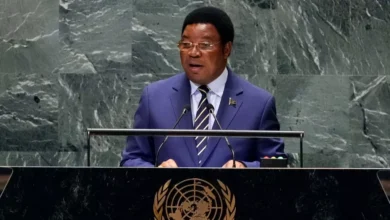
Malian filmmaker Souleymane Cissé, a key figure in the development of African cinema, has passed away at the age of 84.
His daughter, Mariam Cissé, confirmed his passing at a clinic in Bamako, expressing her shock and mourning the loss of a man who devoted his life to film and the arts. The specific cause of his death has not been disclosed.
Cissé achieved international acclaim in 1987 when his film Yeelen (The Light) received the Jury Prize at the Cannes Film Festival, marking him as the first filmmaker from sub-Saharan Africa to earn an award at this esteemed event.
His remarkable career spanned over five decades, during which he garnered numerous awards.
In 2023, Cissé was recognized by Cannes with the Carrosse d’Or award, typically bestowed upon directors who have significantly influenced cinema through their boldness, high standards, and unwavering commitment to their craft.
He was also a two-time recipient of the grand prize at the biennial Pan-African Film Festival, Fespaco. At the time of his passing, he was scheduled to travel to Burkina Faso to chair the jury for the festival, which is set to commence on Saturday.
Tributes have been flowing in for Cissé, acknowledging his commitment to African narratives. Mali’s Culture Minister Mamou Daffé expressed sorrow over the loss of “this monument of African cinema,” while fellow Malian director Boubacar Sidibé noted that the nation’s film industry is in “mourning.”
Film enthusiasts have lauded Cissé’s works for their intricate storytelling, political relevance, and profound humanity. His debut feature film, Den Muso (The Young Girl), filmed in 1975 in the local Bambara language, is regarded as a classic of African cinema.
The film tells the story of a young girl who is raped, becomes pregnant, and faces rejection from her family.
The Malian authorities prohibited the film, leading to Cissé’s imprisonment due to his acceptance of French funding. While incarcerated, he penned the screenplay for his second film, Baara (Work).
Cissé directed several other films, including Finyè (The Wind) in 1981 and Yeelen (The Light), which earned the Jury Prize at Cannes in 1987. His final film, Waati (Time), was released in 1995.
Born in Bamako, Cissé spent part of his childhood in Senegal and later pursued film studies in Moscow, becoming part of the first generation of African filmmakers.
He advocated for government support and investment in the film industry and served as the founding president of the union for West African cinema and audiovisual entrepreneurs.
Cissé frequently voiced his concerns regarding obstacles to the growth of African cinema, condemning “censorship” and “disdain.” He encouraged young filmmakers to avoid the mentality of “beggars” reliant on European funding and to strive for greater autonomy.
Just hours before his passing, he reportedly called on Mali’s military government to assist the country’s film industry in competing with its continental counterparts. “It is not enough to create cinema; the works must also be visible,” Cissé was quoted by the AFP news agency. “May the authorities support us in building cinemas.”




